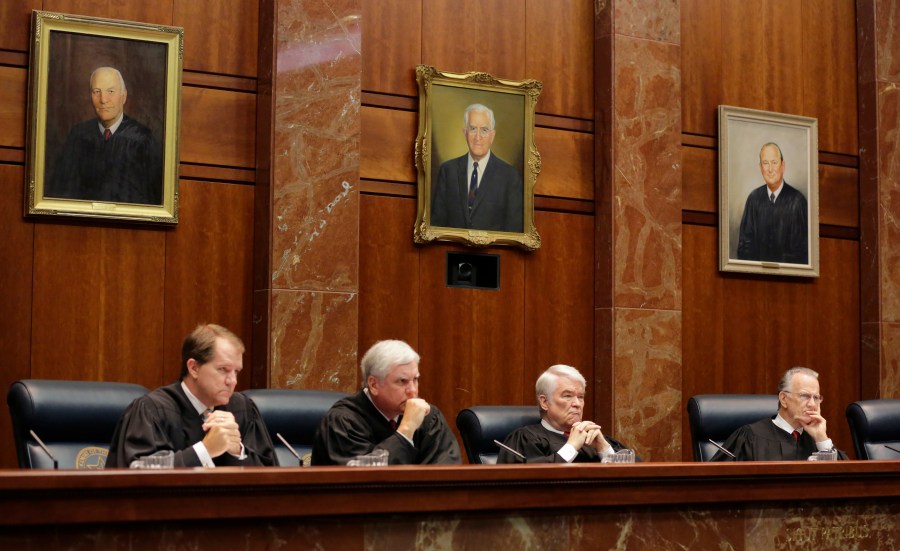AUSTIN (Nexstar) — Texas has too few lawyers to serve the diverse legal needs of a rapidly-growing population — the state’s highest civil court worries. It is a ‘justice gap’ they say often cuts the most vulnerable Texans out of a process to which they are entitled by law.
Today, justice is too often a privilege for the affluent rather than a right for all, the state’s highest civil court asserts, as they aim to expand access by empowering more legal workers to assist low-income Texans.
The Texas Supreme Court on Tuesday announced preliminary rules to allow licensed paraprofessionals and court-access assistant to provide some legal services traditionally limited to licensed attorneys.
“Ensuring that people, regardless of their economic standing, have access to civil legal services is fundamental to the integrity of our judicial system,” Chief Justice Nathan L. Hecht said. “People of limited means who cannot afford legal representation are denied justice, pure and simple.”
The Court cites concerning statistics from the Legal Services Corporation showing unmet civil legal needs are growing, reporting 92% of low-income Americans have unmet legal needs. Some are forced to represent themselves in court without access to an attorney.
“Their basic civil legal needs are real and serious: they include protection from domestic violence, denial of veterans’ benefits and access to housing and food,” Justice Brett Busby said. “We must explore innovative structural changes, like those in today’s order if we are to close this gap, and ensure that justice is not simply a privilege for those who can afford it, but a right guaranteed to all.”
The move complements efforts from volunteer legal groups and advocacy organizations. In June, the Texas Access to Justice Foundation announced their Moonshot Grant Award will start an initiative to expand legal services to underserved communities. Beneficiaries include Disability Rights Texas, Legal Aid of Northwest Texas, Lone Star Legal Aid, Texas Legal Services Center and Texas RioGrande Legal Aid (TRLA).
TRLA reports the gaps are especially pronounced in rural counties. Seventeen counties have just one lawyer, and six have no lawyer at all. The Moonshot Grant will connect people with trained lay advocates to address unmet legal needs across fields, including consumer debt, credit repair, estate planning, housing, public benefits and special education.
“We [TRLA] are thrilled to be partnering with DRTx and other legal aid providers in Texas on this critical initiative,” TRLA Deputy Director Nicole Rivera Maesse said. “The initiative will not only expand legal services to the most marginalized communities but also educate and empower those on the frontlines of these communities to continue paving the path toward closing the justice gap.”
The Court’s order invites public comment on the proposed rules by Nov. 1. The changes are expected to take effect on Dec. 1.
